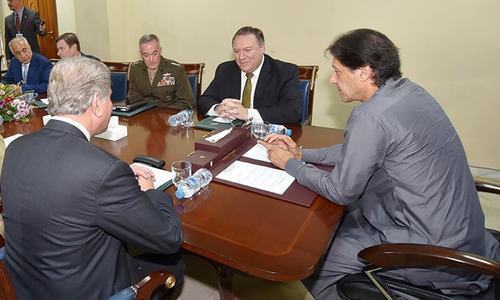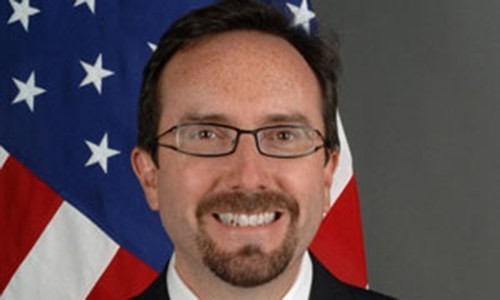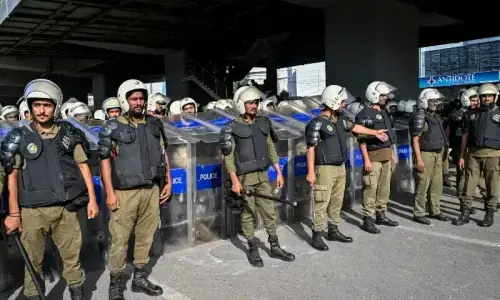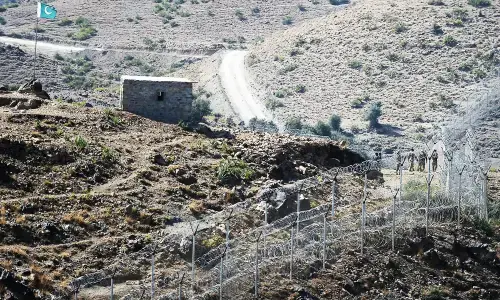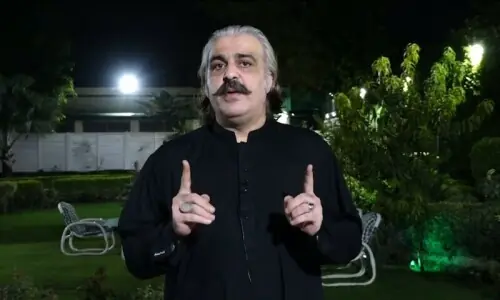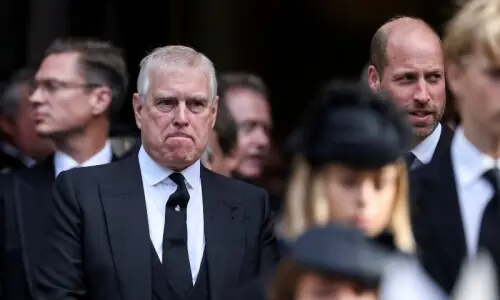Pakistan Navy Chief Admiral Zafar Mahmood Abbasi on Monday said that India’s sea-based nuclear weapon initiative had compelled Pakistan to take steps for maintaining strategic balance in the region.
Talking to media persons at the Pakistan Embassy in Washington, Admiral Abbasi, who is visiting US to attend an international sea-powers symposium, rejected the “myth” that Pakistan was seeking strategic depth in Afghanistan.
The navy chief said though the decision by US to suspend security assistance to Pakistan was not a favourable one, it was not a "life or death situation".
Sea-based nuclear deterrence
Abbasi defended Pakistan’s decision to match India’s sea-based nuclear programme while responding to several questions from the representatives of the US media.
“Sea-based nuclear weapons provide an assured second strike capability which disturbs the equation, so unless we equate that, the imbalance might induce India to start a conventional war,” he said. “We have legitimate concerns and our programme is aimed at discouraging India from doing so.”
In April this year, Pakistan conducted the second flight test of its Babur-III nuclear-capable submarine-launched cruise missile (SLCM). The missile was tested from a submerged platform off Pakistan’s coast in the Arabian Sea and flew to strike a target at an undisclosed location.
Pakistan’s Inter-Services Public Relations (ISPR) announced that the missile “incorporates advanced aerodynamics and avionics that can strike targets both at land and sea with high accuracy, at a range of 700 kilometres".
While Abbasi admitted that Pakistan had tested the Babur-III missiles to meet the Indian challenge, he dismissed a journalist's implication that Pakistan had developed this missile with China’s assistance.
“It’s an all indigenous programme. I will leave at that,” he said.
Abbasi explained that Pakistan has an elaborate programme for ensuring the security of the assets it has developed to counter the Indian threat, “which provides all the tools, procedures and settings under a central command that runs through Strategic Plans Division".
The admiral said that in 2016 Pakistan signed an agreement with China for procuring eight submarines, which will be delivered by 2025. These are all conventional submarines and are not nuclear capable.
Pakistan not seeking strategic depth in Afghanistan
Abbasi also rejected “the myth” that Pakistan was seeking “strategic depth” in Afghanistan.
“Afghanistan is a separate, sovereign country and we respect it as that. Whatever strategic depth we have is our own,” he said.
The naval chief said political changes in Pakistan will not affect its Afghan policy and the country will continue to support peace and stability in Afghanistan. Pakistan, he said, did not want large ungovernable territories in Afghanistan because it had repercussions.
“Terrorists take refuge in Afghanistan and use its territory for launching attacks into Pakistan. The most recent terrorist attacks in Pakistan were conceived, planned and executed from Afghanistan. That’s why we are trying to fence our border,” he said. “We are all for a political solution to the Afghan problem.”
US-Taliban talks
Responding to a question about US-Taliban talks in Qatar, he said: “We welcome these talks. We hope that some sort of solution comes out of that.”
“This is a good beginning that the US is engaged with the Taliban.”
He said the best hope for peace in Afghanistan were the quadrilateral talks that Pakistan had arranged in Murree in 2016. However, those talks, he said, had been sabotaged by leaking the news of Mullah Omar’s death.
Admiral Abbasi rejected the suggestion that Pakistan was financing the Afghan Taliban.
“The Taliban’s biggest source [of money] is the drug trade and we are trying to stop that. About 30-40 per cent of this trade is carried through the maritime route,” he said.
The naval chief urged that the US should share intelligence gathering with Pakistan to combat drug trafficking through sea routes.
'Pakistan is not North Korea'
The navy chief disagreed with the suggestion that Pakistan was being isolated like North Korea.
“Equating North Korea with Pakistan is not right. North Korea does not have a legitimate threat from a neighbour, which is responsible for dismembering it,” he said.
Abbasi explained that North Korea was cut-off from the rest of the world as opposed to Pakistan, which works alongside international forces because Islamabad realises that a country cannot live in isolation.
US-Pakistan relations
The Pakistan navy chief said his country wanted a good relationship with the US, based on mutual respect, not security or economic assistance.
“Security assistance is not our primary consideration. We want good relations with or without security assistance. We have enough resources in Pakistan. We can work without US assistance,” he said.
Admiral Abbasi noted that the US recently cancelled the programme which enabled Pakistani military officers to attend theUS defence institutions.
“We are still sending our officers to the US, funding the programme from our own resources,” he maintained.
He said all three services chiefs were out of the country, visiting the US, China and Russia and the visits conveyed the message that “we want to stay engaged with the international community, with both East and West".
Abbasi said that Pakistan was looking for new and updated jet aircraft for surveillance purposes as the P3C surveillance planes that were given by the US more than 10 years ago were now outdated.
“We are ready to acquire them from any source, including the US,” he said.
No Chinese base in Gwadar
Admiral Abbasi dismissed the concern that China was setting up a base at the Gwadar port, and insisting that “there’s absolutely no truth to that".
“There are no plans to hand over any base to foreign navies anywhere in Pakistan,” he said, emphasising that Gwadar was purely a commercial harbour and only Pakistan Navy would have a base there.
He said so far no foreign warship had entered Gwadar, but whenever that happens it would be open to all other navies including French, Royal and that of the US.
US-India maritime agreement
Abbasi said that Pakistan had noticed that the US and India had recently signed maritime agreements, but added that such deals were not “a zero-sum game".
The US, he said, will also participate in multinational maritime exercises in Pakistan in February next year, where some 50 navies from around the world — including China — will take part. A similar exercise had been held in 2017 in which 37 countries participated.
Abbasi said that unless there was a political resolution with India, there might not be any joint Pakistan-India maritime exercises but under the Indian Ocean Naval Symposium, the two countries as members work together.




